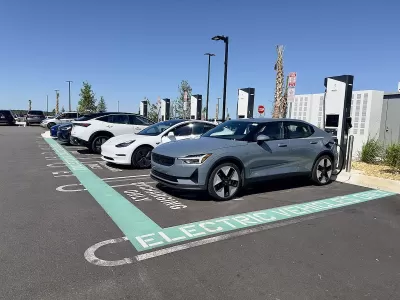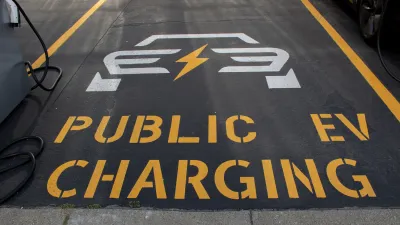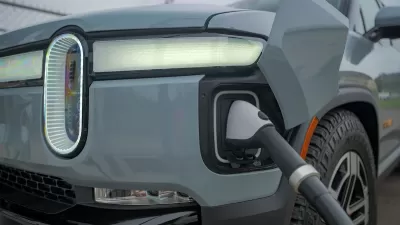Under the new law, cities cannot require charging infrastructure in local codes.

A new Florida law prohibits local governments from regulating electric vehicle charging infrastructure and stations or mandating EV charging infrastructure in building codes, giving that authority instead solely to the Florida Department of Agriculture and Consumer Services (FDACS).
According to an article in JD Supra, Senate Bill 1084 “has far-reaching implications for various stakeholders in Florida,” potentially invalidating local ordinances such as Orlando’s requirement that commercial parking lots include EV chargers for 10 percent of their spaces. This could slow the adoption of EVs in the state.
The FDACS will hold a hearing to consider additional regulations including: “(a) rules allowing local governments to enter into contractual agreements and offering incentives to businesses that provide EV infrastructure; (b) zoning and permitting requirements; and (c) statewide safety standards.”
FULL STORY: New Florida Law Changes Electric Vehicle Charging Station Regulations

Planetizen Federal Action Tracker
A weekly monitor of how Trump’s orders and actions are impacting planners and planning in America.

Congressman Proposes Bill to Rename DC Metro “Trump Train”
The Make Autorail Great Again Act would withhold federal funding to the system until the Washington Metropolitan Area Transit Authority (WMATA), rebrands as the Washington Metropolitan Authority for Greater Access (WMAGA).

The Simple Legislative Tool Transforming Vacant Downtowns
In California, Michigan and Georgia, an easy win is bringing dollars — and delight — back to city centers.

DC Backpedals on Bike Lane Protection, Swaps Barriers for Paint
Citing aesthetic concerns, the city is removing the concrete barriers and flexposts that once separated Arizona Avenue cyclists from motor vehicles.

In These Cities, Most New Housing is Under 441 Square Feet
With loosened restrictions on “micro-housing,” tiny units now make up as much as 66% of newly constructed housing.

Albuquerque’s Microtransit: A Planner’s Answer to Food Access Gaps
New microtransit vans in Albuquerque aim to close food access gaps by linking low-income areas to grocery stores, cutting travel times by 30 percent and offering planners a scalable model for equity-focused transit.
Urban Design for Planners 1: Software Tools
This six-course series explores essential urban design concepts using open source software and equips planners with the tools they need to participate fully in the urban design process.
Planning for Universal Design
Learn the tools for implementing Universal Design in planning regulations.
Smith Gee Studio
City of Charlotte
City of Camden Redevelopment Agency
City of Astoria
Transportation Research & Education Center (TREC) at Portland State University
US High Speed Rail Association
City of Camden Redevelopment Agency
Municipality of Princeton (NJ)





























